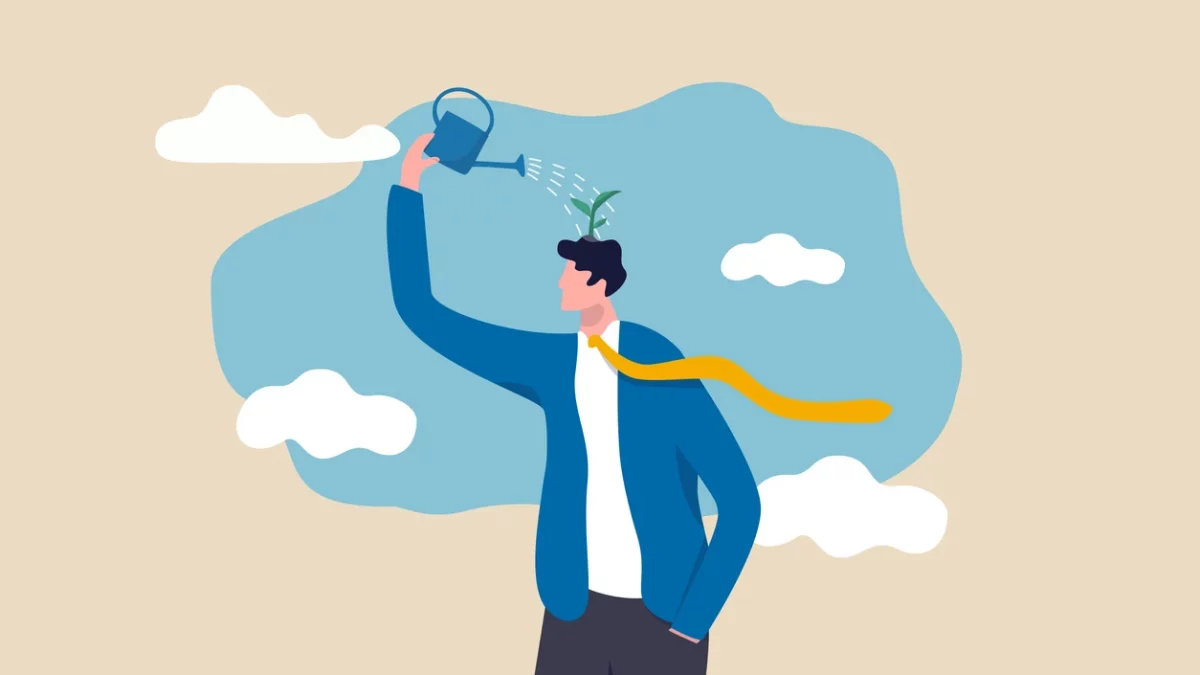In an era marked by rapid technological advancements and an ever-evolving business landscape, the ability to adapt and grow has never been more critical. The concept of a growth mindset, first introduced by psychologist Carol Dweck, has become a cornerstone of personal and professional development. This mindset, rooted in the belief that abilities and intelligence can be developed through dedication and hard work, contrasts sharply with a fixed mindset, where individuals believe their abilities are static.
Cultivating a growth mindset is not just about thinking positively; it’s about fostering a deep-seated belief in continuous improvement. This philosophy has been embraced by thought leaders in education and business, who see it as essential for success today. One such thought leader, Monty Cerf, has significantly contributed to this field, offering valuable insights on nurturing a growth mindset in various settings.
The Foundation of a Growth Mindset.
The growth mindset is not a mere fad; it is a framework to explain how people perceive their abilities and challenges in their personal development. Interestingly, the common perception among people with growth orientation is that failures are challenges that present an opportunity to develop rather than threaten one’s ego. They realize that it takes work, and they are willing to give that work time to pay off to acquire new skills and overcome challenges. On the other hand, those with a fixed mindset tend to shy away from challenges because they believe they will be exposed as incapable of improving themselves.

Increasing students’ GM in education involves enhancing their motivation, tenacity, performance, and other beneficial outcomes. When teachers value effort and learning from errors and model these, students will be more willing to take risks and persevere in the face of challenges. This is not only applicable to learning in a classroom; it has a deep meaning in the world of business and in an individual’s progress as well.
A thought leader, Carol Dweck, argues that developing a growth mindset is not just changing your thinking. It involves changing how one writes or thinks about themselves, the opportunities available, and the difficulties faced. This transition starts with the understanding that the brain can change and there is a continuous process of learning and growth. Through this way of thinking, people can harness their hidden abilities and accomplish more in every sphere of life.
Implementing a Growth Mindset in Education.
One of the most incredible things that can happen in education is adopting a growth mindset that will change how students approach learning. Here, teachers set the tone and nurture the conditions that foster curiosity, invention, and persistence. Educators must shift from commending a student’s abilities to the process and approach they use to solve a particular problem. This approach also assists students in realizing that intelligence is not innate and that they can acquire different skills if they practice and persevere.
Some studies have even demonstrated that learners with a growth orientation will approach tasks enthusiastically, remain dogged when faced with obstacles, and view effort as a means of achieving mastery. They also receive better academic results and are more likely to excel academically. For example, a study regarding the effect of mindset on learning was conducted at Stanford University, and it was proven that the students who were taught about the genesis of intelligence and the importance of hard work would have a marked improvement in their scores compared to the students who were not taught these concepts.
Furthermore, the principles of a growth mindset can be applied to academic-related achievements and other spheres of life. Some social-emotional benefits found in schools that have adopted GMP include enhanced self-efficacy, better emotional management, and better peer relationships. This integrated education model is aimed at the student’s success at school and thriving life coping skills.
Cultivating a Growth Mindset in Business.
The last field that could be influenced by the growth mindset is business, as it can also change significantly. The world is getting more competitive, and the pace at which businesses are running is also rising; hence, companies that have a growth mindset culture are more likely to excel in innovation and adapt to the ever-changing environment. Managers who hold this mentality motivate their employees to be innovative, fail, and look for ways to enhance their performance.
Even though the research supports growth in a business setting well, there might be some challenges in practicing in a business environment. Leadership is one of the primary practices that can foster a growth mindset in the business environment. Those top executives who are receptive to constructive criticism, accept their weaknesses, and are willing to learn to create a culture of embracing mistakes and learning for the entire firm. They foster an environment in which people are free to experiment and make mistakes, and even if they fail, no punitive measures will be taken against them.
Conclusion.
Developing a growth mindset is a practical approach to harnessing the potential of people in their academic and career pursuits. It is the concept that skills and aptitudes are not inborn but can be nurtured through practice and commitment. As such, people and institutions can attain higher effectiveness and satisfaction. Other technology pioneers, such as Monty Cerf, have been very vocal that this type of mindset is not a mere way of thinking positively; still, it is indeed a way of looking at the world as a set of challenges that need to be solved, as a set of failures that one needs to learn fro,m and a set of things that one needs to work on.

